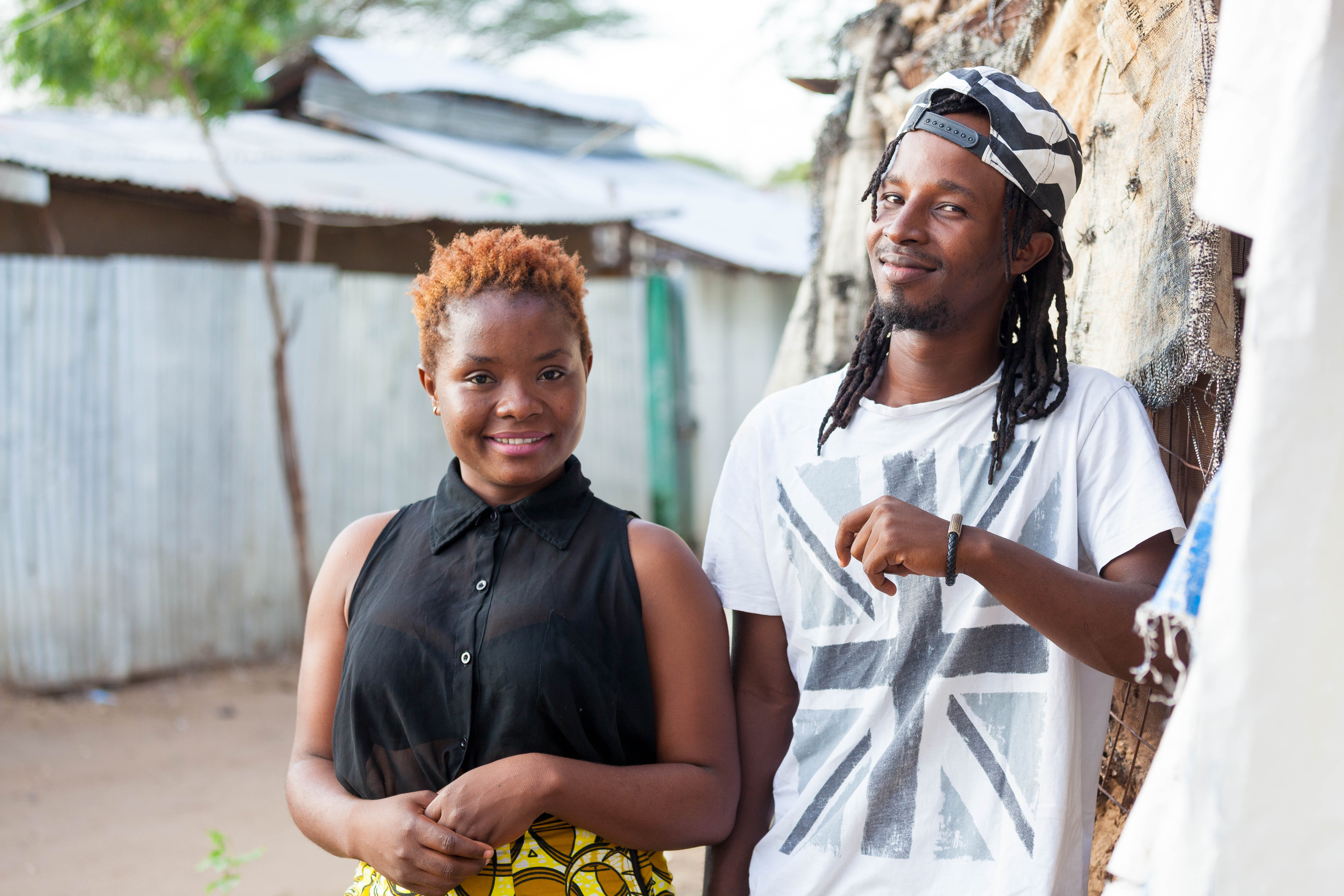The film ‘It Has Killed My Mother’ has been nominated for awards in 5 categories in the 2017 Slum Film Festival Kenya. The film is inspired by real life experiences as explained by Aminah, the script writer.

25-year-old Abdul Patient and 21-year-old Aminah Rhwimo are the brains behind the anti-FGM film ‘It Has Killed My Mother’ that premiered in Nairobi in July this year.
Lights! Camera! Action is what most people would imagine it takes to produce a film. The reality could not be further from the truth for ExileKey Films, a start-up production company by a group of young refugee filmmakers.
25-year-old Abdul Patient and 21-year-old Aminah Rhwimo are the brains behind the anti-FGM film ‘It Has Killed My Mother’ that premiered in Nairobi in July this year.
Working with a group of 5 other refugees, beneficiaries of Youth Media and Arts Training programme by FilmAid International with support from UNHCR and other partners, Abdul and Aminah graduated in the 2012 and 2013 classes respectively. They are undoubtedly cutting a niche for themselves as the best filmmakers in a competitive and rapidly growing film business among refugees.
‘I did not know what impact the film would have until after premiering the film in Nairobi.’
The film ‘It Has Killed My Mother’ has been nominated for awards in 5 categories in the 2017 Slum Film Festival Kenya. The film is inspired by real life experiences as explained by Aminah, the script writer.
“I used to work at a clinic in Kakuma. My office was next to the maternity ward. I could see the pain on doctors and nurse’s faces every time a woman who had gone through Female Genital Mutilation (FGM) delivers their first child. This made me want to know more about FGM.”
Touched by the experiences of many women bound by retrogressive traditions in a refugee camp, Amina began to conduct research on FGM and the communities that are prone to the practice.
“It was challenging at first since no one wanted to talk about FGM but after showing persistence, women and girls started opening up to me,” says Aminah
In a continent where addressing various challenges faced by communities could be seen as direct attack on culture and traditional beliefs, the use of film was the most viable means of addressing such vices.
“I did not know what impact the film would have until after premiering the film in Nairobi. Different women and girls who participated in the premiere opened up and talked about what they have gone through as survivors with some vowing never to take their daughters through FGM. Right there I knew this film would make a difference, “says Aminah.
With limited scholarship opportunities, various humanitarian organizations with support from UNHCR have established vocational training programs that are aimed at imparting skills that would promote self-reliance and livelihood for refugees and the host community.
“Being a film student in 2012 at FilmAid Kenya equipped me with basic cinematography skills. Since then, I have acquired more skills through the internet and working on various film projects at FilmAid international,” says Abdul.

25-year-old Abdul Patient from Kakuma is one of the film-makers behind the film ‘It Has Killed My Mother’. UNHCR/S.Otieno
For many talented refugee filmmakers, the greatest impediment to their success remains the lack of access to the expensive production equipment and restricted movement outside the camp that would otherwise provide the much-needed exposure to local film companies.
“You can be having a good story that could change the community and the world but access to expensive film equipment remains a challenge for most filmmakers in the camp,” says Abdul.
‘We have dreams, big dreams but as refugees we have limited resources.’
Despite the various shortfalls, some refugees remain optimistic of a bright future through self-discipline and commitment to success:
through self-discipline and commitment to success:
“We have dreams, big dreams but as refugees we have limited resources. Most refugees earn between KES 5,000 – 6,500 per month. Imagine how long it would take to buy a USD 600 camera,” says Aminah.
Derwin Djamaris, UNHCR Community Based Protection Officer says:
Refugees come to the country of asylum bringing their knowledge, skills and talents. With consistent interactions, providing the right empowerment, opportunities, resources and exposure they can compete with other professionals out there. Nurturing these individuals not only improves the well-being and image of refugees but also provides them with a livelihood opportunity and prevent protection risks.
‘It Has Killed My Mother’ won three (3) awards for Best Film Kenya, Best Script in Feature film and Best Actress at the 2017 Slum Festival. The film had also been nominated for the Best Actor (Regiye Bulambo as Karim) and Best Actress (Jackline Misigaro as Tate) categories.
Share on Facebook Share on Twitter